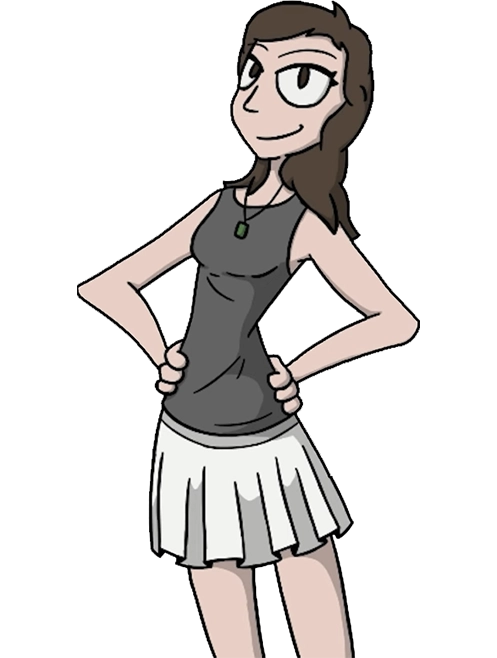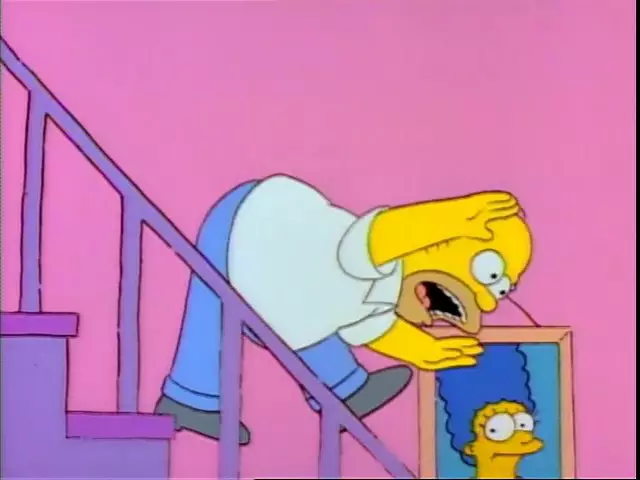My Recollection
Bart goes to France. The cherry bomb in the toilet always interested me because fireworks were outlawed in Australia so the idea that kids could get a hold of explosives was amazing. I would later download the Jolly Rodger Handbook and make a few of the more basic things that explode along with one remarkably effective smoke bomb.
I stopped mucking about with it for fear of injury and because a I had a selection of dirtbag friends who were happy to do it all themselves. Nobody ever got seriously injured, though one time Shane tested his homemade mace on Kyle by saying, “Hey, Kyle” and spraying him in the face with it. It was mostly isocol, tabasco, and salt. I don’t know what the real ingredients of mace are but Kyle screamed and swung blind for a while so this was a fairly effective approximation. It also gummed up the water pistol it was in, so one screaming, blind Kyle was all it was good for. Not great for self-defense purposes but I laughed for 15 minutes, so at least some good came of it.
The Episode
The thing about season one is nobody quotes season one. It’s not that the episodes aren’t ever funny, but the forms of humour that more naturally arise from within the family narrative don’t lend themselves to focal lines. Most of season one has supplemented the lack of great comedy with the kinds of character episodes a show five seasons in can’t. The Crepes of Wrath is a bit of an oddity in that it’s a novelty episode that exists before the show could really commit to the premise or at least fill with good lines. It’s not technically the first of the international stories, that goes to Bart vs Australia, because it’s only Bart visiting France. This split in the family means the action that takes place in France is limited to a few brief scenes that are more about torturing Bart than they are about revelling in the writer’s grasp of international stereotypes. This was probably for the better, given that a combination of the season one writing staff and French jokes would probably be embarrassingly hokey. So the episode is a fairly weak. Limited by the narrative in its ability to really explore character and by its historical position in exploiting more memorable absurdist humour.
Bart arrives home from school to greet a pet frog that has never been referenced again. I get the feeling it’s some long-shot French joke, but its distance from that part of the narrative and later irrelevance suggest otherwise. It may have been an idea for Bart to either have a long term pet, or a series of them, that was abandoned. So now there’s a weird amount of attention to Bart having a pet Froggy that sits in the episiode like a Chekhov’s replica. Bart's strewn detritus winds up sending Homer down the stairs, where he lays listening to a Krusty doll repeat, “I’d like to play with you” until the batteries die. It’s the best joke of the episode and Homer’s simple, squinting reply of, “The boy… Bring me the boy” when Marge and Lisa get home still makes me chuckle. Adding to this is that Bart is upstairs this whole time. An oversight on the writer’s part but it has a way of adding to Homer’s suffering as he’s either too injured or stupid to call for help, or Bart didn’t reply when he did.
When a real child misbehaves, it is typically spared the level of judgement reserved for adults as there is less expectation of complete agency; instead, behavioural management with the goal of correction becomes the focus. This always starts with environmental factors because, even at their most socially entrenched, these are easier to find and address than the dreaded alternative: nature. Bart has legitimate frustrations, injustices, and abuses that one would expect to see in a misbehaving child. The worst being the prison of his own identity. The self is something people defend, even to one’s own self-detriment, as a terrible but known self is less existentially terrifying than an unknown or changing self. The attitudes about Bart that surround him make even the thought of change the impossible ceding of vital land in an eternal war.
But…
Homer and Marge are neither bad nor inattentive parents, Lisa and Maggie are evidence of that, and later episodes confirm the dreaded alternative. Bart’s behaviour and personality are born out of comic necessity rather than an understandable result of his upbringing and this puts an irreconcilable tension at the heart of it. Bart’s behaviour is destructive, to himself and everyone around him, but sitcom fate makes growth or realisation impossible. Sympathy will never last in the face of constantly avoided, and very much deserved, meaningful consequences so the show does the only thing it can: hurt him. Bart cannot be fixed so he needs to be made to suffer. Even if it’s just to balance scales visible only to the omniscient audience, the child must experience real pain.
Bart suffers in this episode, and it is beautiful. Bart is every child that screams at the injustice of first world luxury, not because of an explanation that veers frustratingly into exploitable excuse, but because “FUCKWITTED CUNT” is written in his DNA. His torture in France is every time you’ve wanted to smash some perspective into a brat’s face. It’s the justice of injustice.
A piece of shit can make itself the focus of any teacher’s class time to the noticeable detriment of the ones trying to learn. To someone like Principal Skinner, Bart is a sinkhole people keep paying to cover even as it devours more of the town. Skinner’s hate for Bart is completely counterproductive but completely understandable, the three months without Bart will have been the easiest of his working life. This is also his most successful revenge. Typically Bart serves as the Roadrunner to Skinner’s Wile E. Coyote, which is funnier when it’s a mute bird who may not really deserve it. Bart blows up a toilet and injures Skinner’s mother so he has all of this coming. Speaking of Skinner’s mother, Agnes is first seen here and she is wildly out of character but considering the things that have been done to Skinner’s canon, this is trivial and easily ignored.
So Bart is mailed to France for 3 months while the family receives an Albanian called Adil Hoxha. Albania is kind of an odd duck. It stumbled into it’s own kind of Stalinist Communism after WW2 under Enver Hoxha (whom either Adil is named for deliberately or because it’s the only Albanian last name any of the writers researched) without any actual input from the USSR at all. The hostility it maintained toward the US was the result of indirect American political interference in Albania in the late 40s rather than as a part of Cold War allegiances. It wandered between Yugoslavian and Soviet influence over the years and, funnily enough, had its democratic revolution two weeks after this episode aired. I think it’s a bit of an odd choice of nation to supply a nefarious spy, but they had to give Adil some kind of great fault to make Homer’s preferring him over his own son a more visible moral fault.
Adil dupes Homer into taking him about the plant and taking photos of it for his sinister Albanian masters. There’s a sense that Homer is supposed to be an idiot here but when the intelligent alternative is a suburban dad suspecting a foreign child of being a spy, a plot that would be a message about prejudice in most other shows, the whole thing collapses. The reality of Bart is something Homer notices while Adil is in the house. Without the misfiring cylinder that is his own son, the house is one of near stereotypical familial bliss. Adil’s spy status is an absurd and desperate punishment for this, and serves only to highlight just how right Homer is. Bart, meanwhile, is treated worse than a mule by his French consequences, Cesar and Ugolin. A story that culminates in Bart’s realization that he’s the problem while on a trip to buy anti-freeze. There’s a catharsis to this, both for the viewer and Bart, and his acceptance gives way to the sudden manifestation of the French language skills that save him. It plays out a bit like sudden rain on Dune, but it’s necessary given the constraints of a 23 minute show.
Pursuant to my point about character immobility, Bart’s realization changes nothing. By the next episode, comic fate has reset him back to what he was before and this is why he was made to suffer and will be made to suffer again. Conversely, Homer doesn’t change his mind at all. Even after being arrested as a spy, Homer is sadder to see Adil go than he is happy to see Bart arrive. There’s scarcely even an attempt at having Homer undergo some kind of realization that he actually loves his eternal burden of a child. It’s an odd counterpoint to leave in the show, but better than the typical use of unconditional love to forgive behaviour that is certain to be repeated.
The anti-hero or heel who grows in popularity enters risky territory. An underdog can escape consequences in manners that would be wildly unfair for a champion. An environment of zero growth means smaller consequences and character moments can’t add up, so the show has to create character balance with blowoff episodes where their new god is tormented. Nothing changes in the narrative but the viewer’s scales get reset or tipped away and the process can begin again without fear of overload. The Crepes of Wrath serves as enough torment to make Bart’s bullshit palatable to the audience. It serves this function well but lacks much else to distinguish it. It’s a novelty episode that misses out on the novelty and a character episode with only half a cathartic epiphany. All we really have is the joy of watching a ten year old boy suffer.
Yours in needing civil defence plans, Gabriel
Jokes, lines, and stray thoughts
Homer falling down the stairs is funny and a testament to Dan Castellaneta’s voice acting. There’s a high pitch to Homer’s shrieks of pain that help them straddle a difficult line of believable but humorously exaggerated.
Agnes Skinner is just a lovely old lady here, both because she needed to be to add to Bart’s crime and because they were yet to turn Skinner into a Norman Bates without the courage to do anything about it. DVD commentary mentions that this was probably the event that changed her, though this is more a throwaway joke than a real explanation. I can’t even bother to really address it outside of this as it’s irrelevant given what happens to Skinner’s back story later on.
Bart drives through several paintings of the French landscape by Monet, van Gogh, Picasso, and Manet. Running a nice mix of impressionist, post-impressionist, and post-post-impressionist (cubist) art styles.
Apparently Cesar shows up in an episode from season 27 but I’ll cross that bridge when I come to it.
Homer really doesn’t end the episode with any kind of revelation that he should love his child and I find that really funny.





1 replies to The Crepes of Wrath
Anon on 27th September 201727 Sep 17 said:
aww sweet i was waitin for this
Comment on The Crepes of Wrath
To reply, please Log in